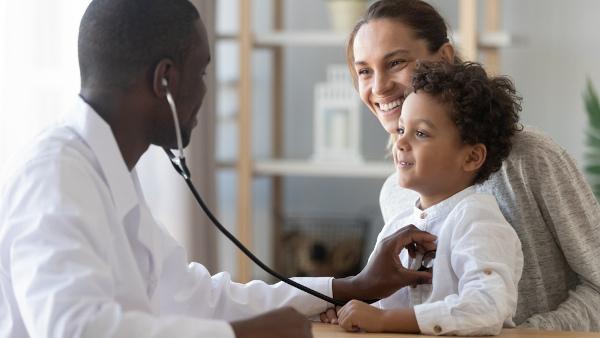Youdangers of self-medication in children there are many, however, despite the risks, many people insist on administering medication without proper medical recommendation. Among the risks of self-medication, we can mention poisoning and the difficulty of diagnosing certain illnesses due to the fact that some medications can mask important symptoms.
Read too: What is natural doesn't hurt?
What is self-medication?
Self-medication can be defined as the act of using medications without having been recommended by a physician. Self-medication is often done in order to get rid of symptoms that are causing discomfort, such as a headache. The practice, despite appearing harmless, can be dangerous depending on the drug used and the disease that the person has. A simple headache, for example, can indicate a more serious problem that may be being masked due to the use of medications on their own.

When we talk about
self-medication in children, we are talking about the administration of medication in children by their guardians or caregivers without medical advice. In children, caregivers are usually looking for relief from situations such as cold flu, pains and fevers. According to some surveys, among the drugs most offered to them are the painkillers, anti-inflammatories and antibiotics.What are the dangers of self-medication in children?
The use of over-the-counter medications presents a series of dangers, regardless of the age of those taking them. In children, this situation can be even more dangerous, due, among other factors, to the child's difficulty in expressing what they are really feeling. Below are some dangers of this type of self-medication:
Drug interactions: one medication can interfere with another one the child is taking. Certain substances contained in certain medications can, for example, potentiate the action of others or even cause the other medication to lose its effect.
-
Intoxications: if not used in adequate doses, many drugs can cause intoxication. Also, if the dose is too low, it may not be enough to treat a problem. Another important point that deserves to be highlighted is the accidental intoxication due to the presence of medications in homes.
Many medications are colored and sweet, which can attract the child's attention, who can use them when a guardian is not present. In addition, many guardians offer medicine to children saying that it is candy, the that can make them think it's something harmless and can be consumed without any problem.
Incorrect association between symptom and its cause: sometimes the symptoms presented by a child are interpreted by a layperson as a health problem when in reality it is another one. This can lead to incorrect treatment and, consequently, aggravate the patient's clinical condition. It is common, for example, that infections viral are treated with the use of antibiotics, drugs that act against bacteria and are not effective against virus.

-
Masking of more serious diseases: many people use over-the-counter medications to treat problems they consider “simple,” such as a headache or sore throat. It is common for parents to report that they offer, for example, anti-inflammatory drugs for children when they have a sore throat, but it is important to make it clear that the drug does not treat the cause but the symptom.
Therefore, the infection can get much worse before the doctor is consulted, delaying the beginning of the correct treatment. Still considering this example, it is important to highlight that anti-inflammatory drugs are not risk-free medications, which can cause damage to the liver, kidneys and allergies.
-
Bacterial resistance: the inappropriate use of antibiotics contributes to the increase in bacterial resistance, a serious public health problem. The development of bacterial resistance to antibiotics it is considered a natural problem, resulting from the use of this type of drug and the selection of resistant strains.
However, with the inappropriate use of the drug, what can be seen is the worsening of this problem, with the emergence of resistant strains to different types of antibiotics, which ends up making treatment difficult, increasing the length of stay of patients in hospitals and the mortality rates.
Source: Brazil School - https://brasilescola.uol.com.br/saude-na-escola/perigos-da-automedicacao-em-criancas.htm
